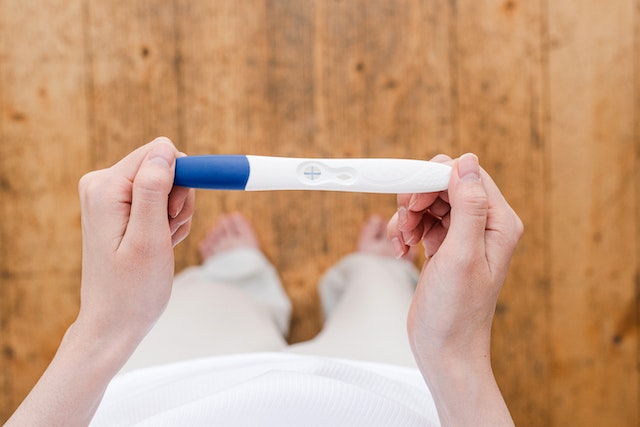
The term “Geriatric Pregnancy” conjures images of much older women and their burgeoning bumps. A late-in-life pregnancy perhaps, or something of biblical reference comes to mind. But the truth is the medical arena uses geriatric pregnancy to reference those who are pregnant and over the age of 35. The term is interchangeable with the less archaic sounding “advanced maternal age” distinction.
While some find the term a little unsettling if not off-putting a geriatric pregnancy is simply a way to classify a pregnancy that may have mire risks than a pregnancy occurring in a woman under 35. A geriatric pregnancy is really not treated much differently than any other pregnancy. If you are in good health and don’t fall into any other risk categories a geriatric pregnancy my require a bit more monitoring than is typical and our doctor may recommend age-specific tests but for the most part you should expect an uneventful pregnancy.
That’s not to say you shouldn’t be aware of the risks of pregnancy after the age of 35. The closer you get to menopause the higher the risk for miscarriage and for certain chromosomal abnormalities. Here we take a deep dive into what makes a geriatric pregnancy and why it’s considered a bit more risky.
What Makes Pregnancy Over 35 Different
There is no magic switch that engages the minute you turn 35 and every geriatric pregnancy isn’t the same. Your doctor considers your health and other factors and performs a risk assessment before deeming you a high-risk pregnancy simply due to your age. Many people experience healthy pregnancies well into their 40s.
CDC statistics show birth rates for those over age 30 growing at a steadfast pace. The reasons for delaying pregnancy vary but typically career advancement and being on better financial footing are among the motivations. And while there are risks in any pregnancy at any age, the risks for those over 40 are nearly double the risks for those 20-34. Here are some of the potential complications associated with geriatric pregnancy:
- Loss of pregnancy
- Genetic abnormalities
- Preterm birth
- Stillbirth
- Placental abruption
- Pre-eclampsia
- Gestational Diabetes
- High rate of cesarean sections
As you get older so do your eggs and that increases the risk for chromosomal and genetic abnormalities. Another factor is the tendency for development of chronic conditions such as diabetes and high blood pressure as you age. These conditions complicate pregnancy.
Testing for Those of Advanced Maternal Age
As we mentioned earlier one of the ways physicians ensure the safety of both mother and baby in a geriatric pregnancy is through special testing for those over 35. Prenatal care is essential to a healthy pregnancy no matter what your age. But because of the increased risks associated with geriatric pregnancies your physician will likely perform the following four screenings, and depending on the outcome possibly more.
Genetic Screening
Genetic screening is the first test your doctor may recommend. Anyone, of any age, trying to conceive or already pregnant should consider genetic screening. A genetic counselor maps all branches of your baby’s family tree in order to assess the genetic risks and specific conditions that may complicate your pregnancy.
Level II Ultrasound
Sometimes offered as part of routine prenatal care a level II ultrasound is necessary given the risks of a geriatric pregnancy. Your doctor performs this type of ultrasound around the middle of your pregnancy (about 18-20 weeks) so they can better evaluate your baby’s growth, anatomy, amniotic fluid and placenta.
Chorionic Villus Sampling (CVS)
Your doctor recommends CVS usually based in the results of the genetic screening. This test screens for genetic abnormalities and defects. Your physician performs CVS early in your pregnancy, typically in he first trimester. Your doctor takes a sampling of the cells from the chorion, which is the fetal portion of the placenta. CVS is a highly dependable test and when performed after the 10th week of gestation, poses minimal risk to you to your pregnancy.
Biophysical Profile and Non-Stress Test
A non-stress test (NSR) assesses fetal movement and heart rate using a fetal monitor. For a biophysical screening your doctor combines the NST with an ultrasound. This test is typically performed around 32 weeks just to make sure all is going as it should. This test measures movement, muscle tone, amniotic fluid, breathing and heart rate.
Additional testing may be necessary depending on the outcome of the initial four tests and any underlying conditions you have.
What You Can Do to Ensure a Healthy Pregnancy
There are certain steps you can take at any age to help ensure a healthy pregnancy and successful outcome. They are:
- Early and regular prenatal care is essential to a healthy pregnancy at any age.
- Healthy lifestyle choices help you avoid putting your unborn baby and yourself at risk. Avoid alcohol, tobacco use and recreational drugs. Eat a healthy diet, get a good night’s sleep and regular exercise to maintain your health and wellness.
- Discuss any medications you take with your doctor before taking while pregnant.
- Take supplements formulated to support a healthy pregnancy, including folic acid, but only with your doctor’s approval.
Fertility Help Over 35
If you are over the age of 35 and have tried to conceive for more than six consecutive months without success it’s time to discuss your fertility and options for pregnancy. Our caring and compassionate staff of reproductive professionals is here to help. Contact LA IVF today and let us help you realize your dream of a happy, healthy family.










